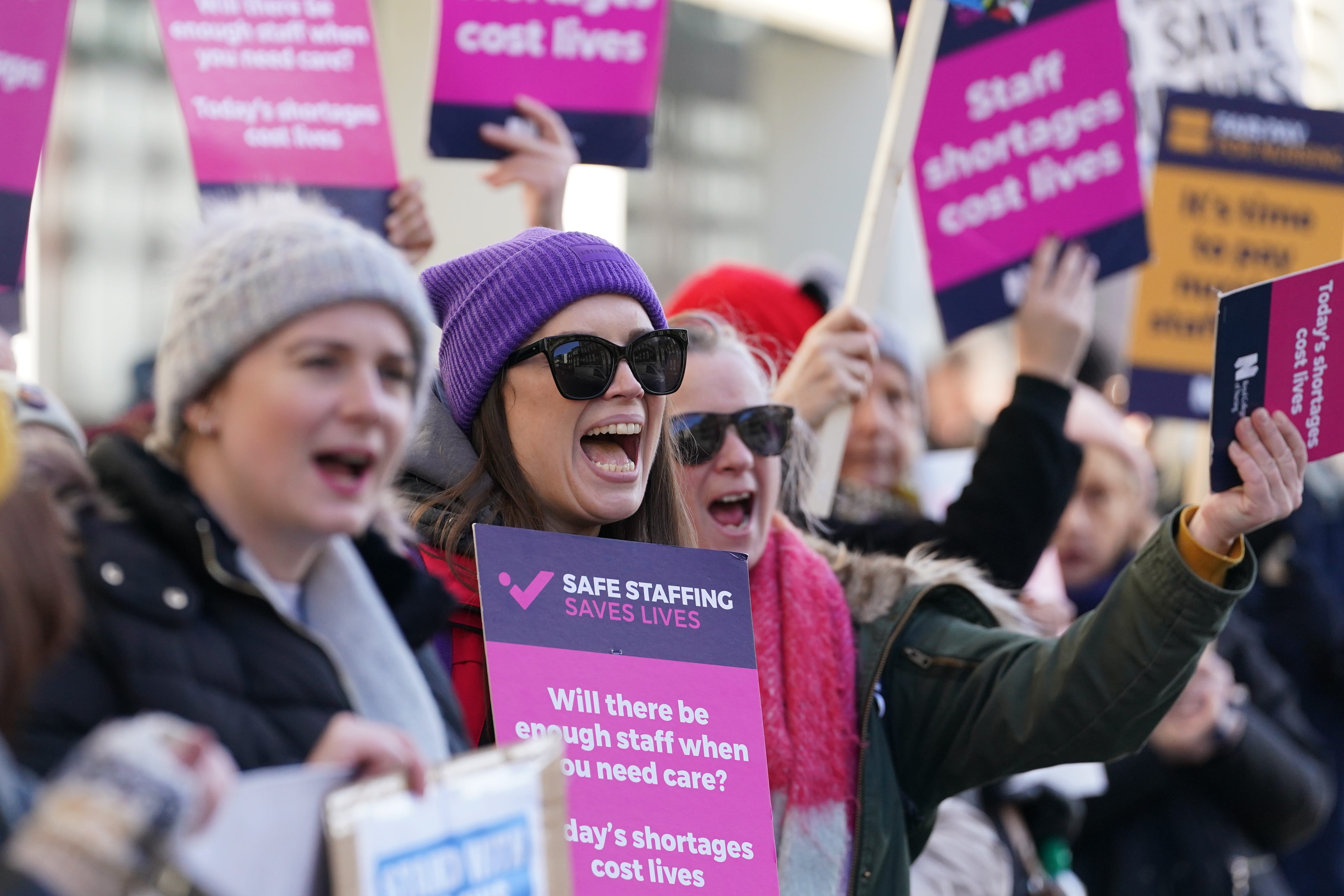Warning over urgent and emergency care as nurses’ strike approaches
NHS leaders have sounded the alarm over keeping patients safe.

Your support helps us to tell the story
From reproductive rights to climate change to Big Tech, The Independent is on the ground when the story is developing. Whether it's investigating the financials of Elon Musk's pro-Trump PAC or producing our latest documentary, 'The A Word', which shines a light on the American women fighting for reproductive rights, we know how important it is to parse out the facts from the messaging.
At such a critical moment in US history, we need reporters on the ground. Your donation allows us to keep sending journalists to speak to both sides of the story.
The Independent is trusted by Americans across the entire political spectrum. And unlike many other quality news outlets, we choose not to lock Americans out of our reporting and analysis with paywalls. We believe quality journalism should be available to everyone, paid for by those who can afford it.
Your support makes all the difference.Health leaders have sounded the alarm over the safety of urgent and emergency care patients ahead of the planned nurses’ strike at the weekend.
NHS Confederation said that if there are no exemptions to the walk out – such as nurses still providing A&E cover – then health leaders fear they will not be able to guarantee safe care for patients.
The strike – which is subject to a legal challenge – is set to start at 8pm on April 30 and last for 48 hours.
NHS leaders are worried that this action could lead to hospital wards becoming overwhelmed during the strike days
It marks a significant escalation in the bitter dispute over pay.
In previous walkouts, nurses have agreed to derogations – or exemptions – so that some critical services are still staffed.
But the latest round of strikes will see nurses in England take to picket lines with no derogations after a resounding vote against the revised pay offer made by the Government.
NHS Confederation has urged the union to reinstate national exemptions, particularly in critical and emergency care.
It said that bank holidays are already a busy time for urgent and emergency services and so the absence of nurses to fill shifts could put patients at risk.
Matthew Taylor, chief executive of the NHS Confederation, said: “While NHS leaders understand why the RCN is intensifying its stance on industrial action, they fear the absence of any exemptions to its planned strikes will put patient care in a precarious position.
“This is particularly the case for patients who will need emergency and intensive care.
“NHS leaders are worried that this action could lead to hospital wards becoming overwhelmed during the strike days and could even put some people off from seeking the care they need.
“We are calling on the RCN to reinstate these vital derogations without delay.”
An RCN spokesperson said: “Nursing staff don’t want to go on strike, but the NHS and Government have had two weeks to plan for this weekend’s strike.
“Employers are responsible for maintaining safe staffing levels and we’d expect them to cancel non-urgent clinical work and elective procedures due to take place over the strike period.
“We know this is a difficult task and there are exceptional circumstances where we would call a strike off in any hospital.
“But we must remember employers already make difficult staffing arrangements work on most days.
“Nurses are constantly having to ‘make do’ with too little staff or not enough beds for people, this level of pressure can’t go on any longer.
“Nurses have been left with no option because this government won’t listen – you cannot say they are too valuable to strike but not valuable enough to pay fairly.
“NHS leaders should be concerned by the health secretary spending time and money dragging nurses through the courts, instead of negotiating with us and finding a resolution to this dispute.”
Earlier this week, the Government announced intentions to challenge the legality of the strike at the High Court.
Health Secretary Steve Barclay said he was “regretfully” applying to the High Court to declare the walkout planned for May 2 unlawful.
Mr Barclay said NHS employers had contacted him asking him to check the legality of the action because the strike mandate runs out on May 1.